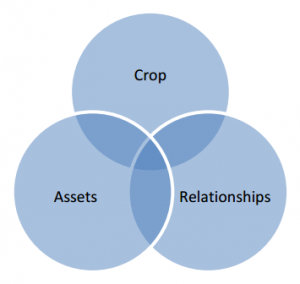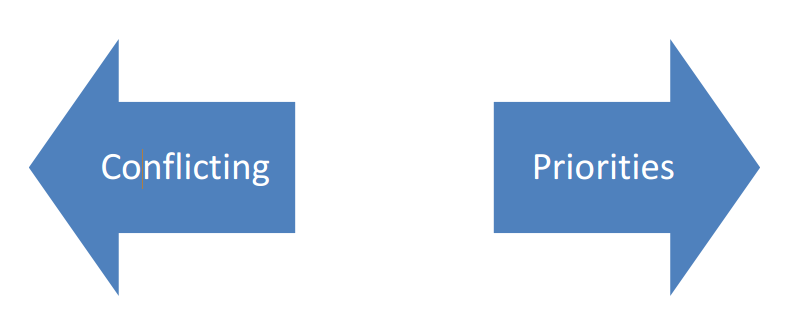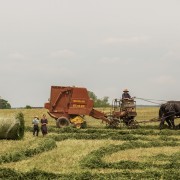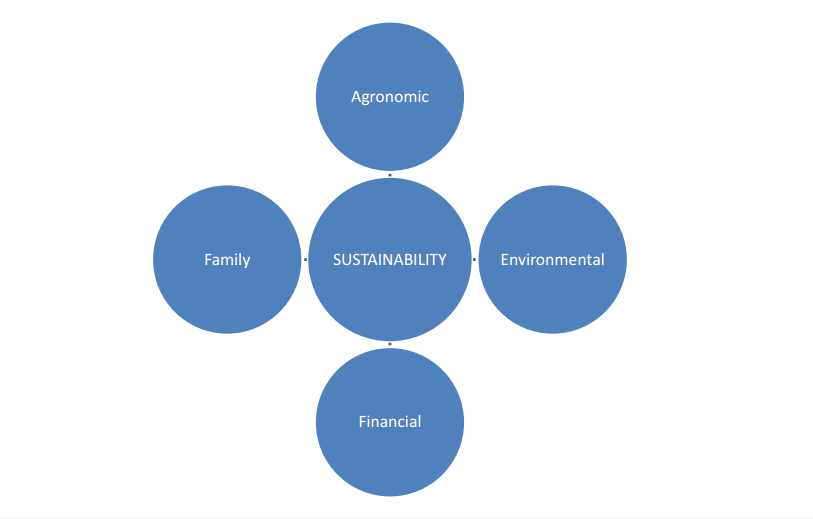In Issue #1 of Growing Farm Profits Weekly, we introduced how nurturing your business was one of
many critical factors that can affect your business success. This week, we’ll look deeper at nurturing
your business and how to leverage this often overlooked aspect of owning and operating a successful
enterprise.
Increasing wealth is the goal of any business, and only a healthy business can deliver accordingly. And
how you view wealth can be as unique as you are. The obvious answer is “profit at the bottom line,” or
“strong equity,” but some will argue that wealth is “discretionary time.” How do you define “wealth?”
Give it some thought; it will provide clarity in how you run your business.
There is a healthy ratio of nurturing that applies to 3 key aspects of your business:

Crop
As discussed in the previous issue of Growing Farm Profits Weekly, your crop gets substantial amounts
of your attention because you know that investing significantly in your crop will grow you a better crop.
And a better crop leads to better marketing opportunities, which lead to stronger cash flow and higher
margins, which lead to profit. Simple as that? If only…
Assets
Yes, this means the tractors and combines, the trucks and trailers, the sprayers and swathers…the equipment on the farm needs to receive adequate nurture; these are the tools of your trade, and they need to perform when you need them. This is why you service regularly, send equipment into the shop for a certified tech to go through it in the off-season, and consistently use recommended operating procedures to ensure you minimize the risk of downtime.
But how much time do you spend nurturing your “other” assets?
Your HUMAN ASSETS (ie. your family and hired staff) require nurturing too. Unlike a piece of equipment
that runs the same whether you yell at it & operate with great disregard or if you treat it like a treasure,
your human assets often require a specialized approach. Just like you can relate and react better or
worse with certain people and their approach, your HUMAN ASSETS will also respond better or worse to
your approach. And if you view your human assets with the same regard you view your equipment, or
with less esteem than you give your equipment, then you’d better take a long hard look at your business
because it will be vastly different in a year or two.
If we consider the cost of owning/leasing and operating your farm equipment, it’s a safe bet you’d be in
the range of $40-$90/ac. Yes, that’s a big range, but there are big differences in each farm’s expense
management (we’ll tackle this in a future issue.) Please note this does not include capital outlay for the
purchase price. The cost of ownership/lease and operation looks at operating costs (fuel, oil, repairs,
etc.) lease costs, and “real” depreciation (not necessarily what CRA allows you to claim as a non-cash
expense.) We also consider custom work when calculating machinery cost per acre. Now that we’ve
established that your iron has a significant cost, why would anyone consider putting a $15/hr operator
in it? In one hour, you’ve paid an operator $15 to run equipment across upwards of 25ac or so that can
carry a machinery cost of $500-$1,000. Again, if you view your human assets as dispensable, this isn’t a
surprise in your line of thinking. But then it also shouldn’t be a surprise when that same operator isn’t
too concerned about stopping to rectify those plugged hoses on the air-drill.
If you’ve spent time building specific processes around HR management, you already recognize the need
to nurture your human assets. Congratulations, you’re on your way to ensuring the future success of
your business. Some processes you will want to implement are:
- Recruiting, interviewing and selection
- Performance management
- Wages and incentives
There are many more items for this list, but we’ll save that for a future issue.
Relationships
While grain farming in North America is a commodity based industry, successful operation of your
business requires your adeptness at managing several key relationships. These relationships cover the spectrum from your professional advisors all the way to the part-time weekend counter staff at the equipment dealer.
I’ve seen some who give their least regard to the relationship with their accountant. True story; they see
the accountant as a “necessary expense” in order to file the “necessary tax forms.” Sadly, there are
many farmers out there who share that view. They do not recognize the importance of evaluating
business results against expectations or projections. I suppose these are also the businesses which do
not make business plans or projections.
How about service relationships? It’s easy to commoditize the grain buyer, the inputs retailer, or the fuel
supplier because there is always competition vying for your business. But if you don’t nurture the
relationship with your fuel supplier, what are the odds you’ll get that urgent May long-weekend
delivery?
Do service relationships extend to your staff? Do you pay them to provide you and your business with a
service, or are they integral members of your farm team? What do they need? What motivates them?
Why are they working for you and not somewhere else? If you don’t know the answers to these
questions, you’ve got 4 more days this week to find out…get on it!
Direct Questions
How do YOU define “wealth?”
Are you getting the most out of your crop? By that I mean “are you maximizing the most efficient
processes” available to produce your crops? It’s not about the highest yield at the coffee-shop; it’s about
gross margin (yet another future issue.)
Have you calculated the ROI on nurturing your human assets relative to the ROI on your iron assets?
What processes and procedures have you implemented to support your efforts to nurture your human
assets?
Ask yourself how you value the relationship you have with the following:
- Agronomist
- Business Advisor
- Accountant
- Banker
- Lawyer
- Commodity Markets Advisor
- Equipment Dealer
- Inputs Retailer
- Fuel Supplier
- Family
- Staff
Is there one way you can strengthen each relationship this month?
Are you nurturing one aspect of your farm to the detriment of another? Why? Have you calculated the
net cost of this practice?
From the Home Quarter
We invest our resources in a manner that we expect to provide us with a return. And no matter if that return is tangible or intangible, it all creates the net benefit to our business: positive or negative.
You’ll notice I will rarely refer to the weather in this writing because we cannot control the weather. As a
business advisor, I focus on what we can control. For example, how do we invest and allocate our
resources: financial, intellectual, human, equipment, and most importantly, time. I believe in Alan
Weiss’ theory that “wealth is discretionary time.”
For any business owner to achieve maximum discretionary time, he/she must recognize what they do
best, and get help with the rest. Business owners must nurture their business in such a manner that
maximizes ROI, because as Alan Weiss says, “real wealth is discretionary time, but money is the fuel for
that wealth.”
Don’t get so caught up in earning money that you have no wealth.
Profit is not a swear word.
Time is the most precious, non-renewable, intangible resource we could ever spend. Treat it as such.
Growing Farm Profits™ provides topical and pragmatic business management tips and tools for primary
producers in Canadian agriculture.





